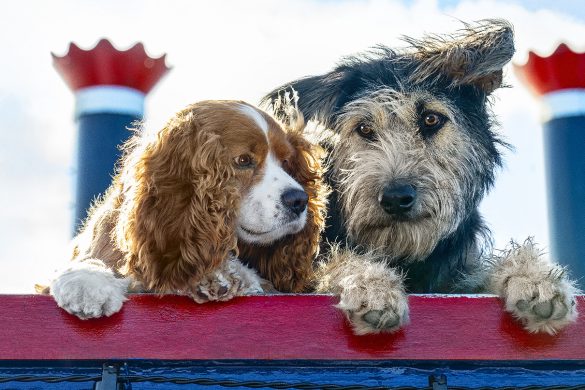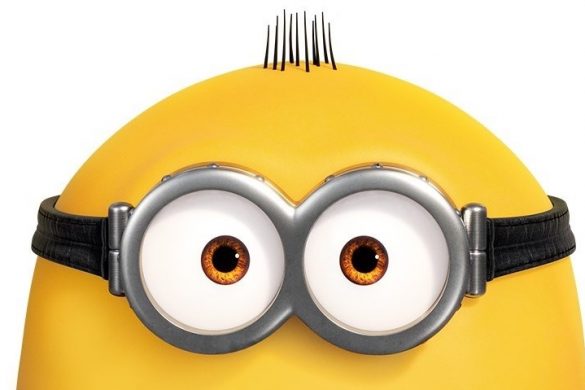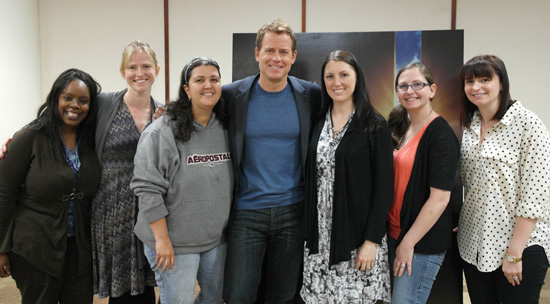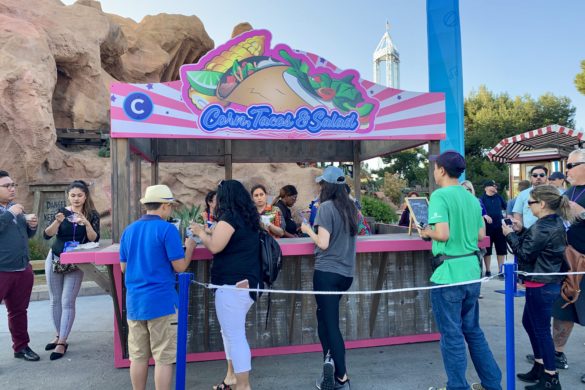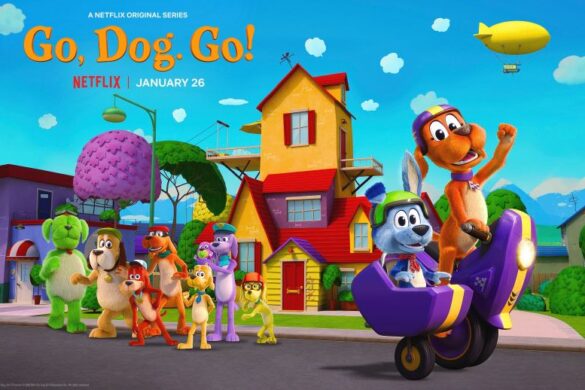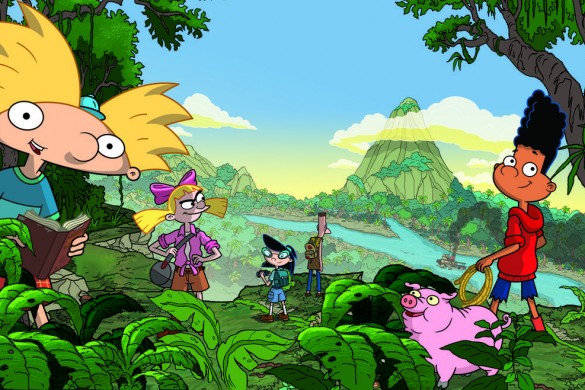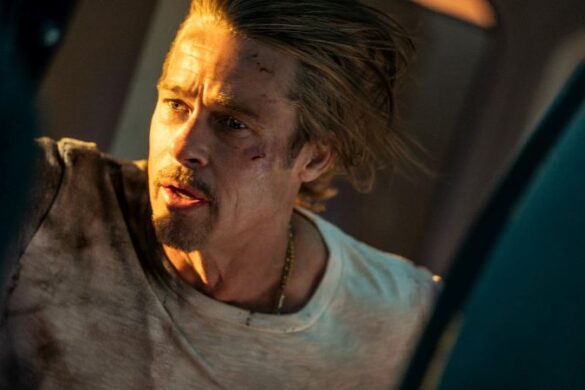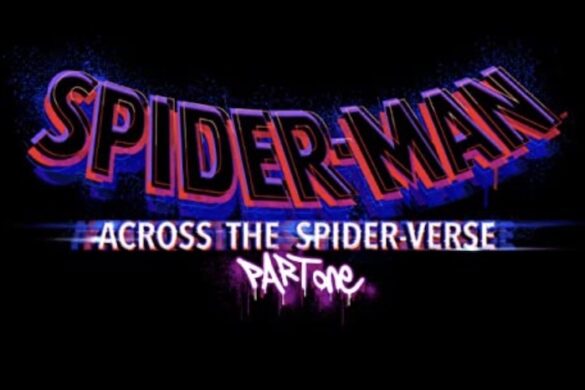Loving is from the acclaimed writer/director Jeff Nichols (Take Shelter, Mud, Midnight Special). It is based on the real-life story of Richard and Mildred Loving, an interracial couple that fell in love and were married in 1958, during a time when this was against the law in the state of Virginia.
Thatsitla was part of a small group of bloggers that got a chance to have an intimate Q&A with some of the cast on making this wonderful real-life story about unconditional love and civil rights.
Attending this Q&A: Jeff Nichols (writer/director), Ruth Negga (Mildred Loving), Joel Edgerton (Richard Loving), and Terri Abney (Garnet).
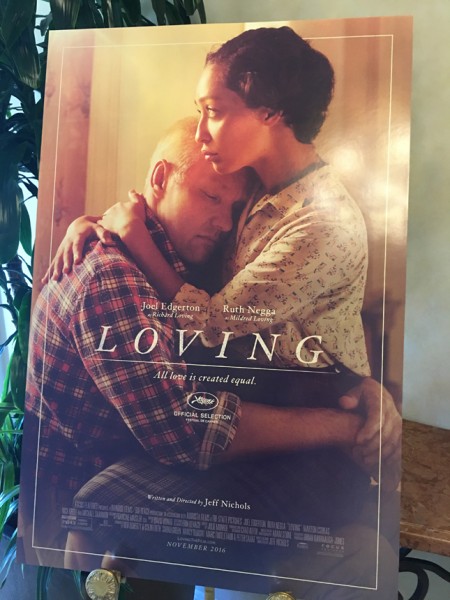
Is it challenging bringing these people to life when you don’t have that safety net of dialogue?
JOEL EDGERTON: I really learned something, there was a lesson in that, in one of the last roles I had done was very verbal. And you allow the words to say so much, and you know, subtext obviously is very important. But when you get all the words taken away from you, and you play a person who thinks a lot, but says very little. You have to be very focused on the specificity of what silence is or means, or is generated by, or is a reaction to. And that was a lot of concession that Jeff and I had on the days of shooting those certain scenes which was like, I guess in some way writing the speeches that weren’t being said, and having a very clear idea as to you know. For example, we talked a lot on-on the day we were shooting scene with Sheriff Brooks.
When he’s talking about ‘a robin, a robin and a sparrow being a sparrow,’ and about the energetic nature of the silence and what it meant. The darting of the eyes, looking for the door and wanting to kind of get out and the frustration of trying to form words. All those different reasons that could be behind silence. So it actually became real joy and focus and a lesson to take on to other projects, I think for me. But Jeff was very specific in the screenwriting. That meant that it wasn’t as big a mystery as it could be in the hands of somebody else, because you know, there weren’t a lot of words of dialogue on the page, but you knew exactly what was going on.
Did any of the actors find it intimidating to play a role in a true story?
TERRI ABNEY: Yeah, I mean, I would have to say definitely. You want to do the character justice. You want to honor their legacy and you want to tell the truth, and so it is intimidating. But then the main thing for me was just to rise to the occasion, and that happened by doing the homework, knowing the time period, the era and then really understanding the relationship that I had with all the other characters.
JOEL EDGERTON: The easy part of it is that it narrows the field of options. You don’t have to create a character out of nothing. You don’t have to draw any picture on a blank page. You’re told what picture to draw. But the challenge, or the difficulty becomes, putting the pressure on yourself to do it and to go beyond. Well, I think for Ruth and I, having so much archival footage, the risk is that you just end up acting in a bubble. Because you’re concentrating on the way you sound and the way your posture has changed, the way you move and that it becomes an impression or mimicry. But it has to go beyond that.
And the real key was not so much the characters, but like Terri’s pointing out too, the relationships between the characters. Particularly for Ruth and I to harness the energy of a relationship, that again wasn’t our creation so much as a combination of us, working with a very detailed laid out plan in the screenplay that Jeff had written.
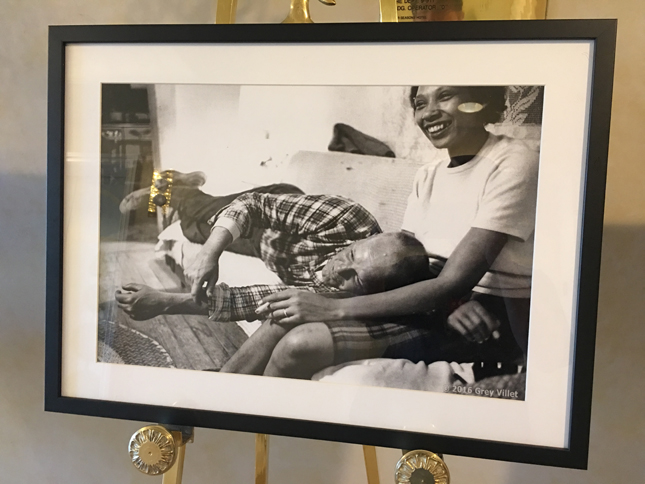
What was it like to work in the real life surroundings of the Caroline County?
JEFF NICHOLS: You know, it was a necessity for me, going in. When I was approached about this in 2012, the first thing I did was go to Virginia. It was the first place I went. And some important thing happened. I’m going to the courthouse that they were tried in, I’m going to the jail where they were held. All of which were used in the film. I’m going to the home that they lived in, hiding in. Which was about a three minute walk from the field, in the film where he proposes.
These roads. These places. These fields. They were integral to Mildred. And Ruth can certainly speak to that. But, playing devil’s advocate early on as a writer, you’re like, okay, well I’m just going to say well what’s the big deal? D.C.’s about two hours away, you know? Really, this is the problem? And absolutely it is. It could’ve been another universe for her and her separation from nature. Specifically, I think, was a big part of her depression in D.C. and a big part of the drive that would push her back to the country, to bring her family back under the threat of arrest or much, much worse.
So, understanding that place, the physicality of it, was very important. But then when you’re in production, it adds this focus. There’s a responsibility that is so tactile because you’re walking, literally in their footsteps. I mean they’re standing in front of the judge’s bench, that Richard and Mildred stood in front of. That can’t help but remind you that these aren’t characters in a movie. You know, these are real people, flesh and blood and we need to honor that.
If you were in that same position, would you have taken the same path as the Loving’s did?
How would you have acted in that same situation?
RUTH NEGGA: That’s a very good question. I would think we all like to think that we would, that our goodness and our integrity would prevail.
I’m not sure actually, considering the time that they were living in. It was a time of extraordinary tension, quite a brave thing to speak up in many instances over the risk of violence or imprisonment. You risked a lot. So, I would like to hope I would.
I think that’s why people admire this couple is their tenacity and perseverance in the face of that, the bit status quo. It’s quite an amazing feat actually. Especially Mildred’s refusal to be silenced and that lovely sort of self-belief in herself without being demonstrative of it.
She’s this beautiful. She has great self-esteem and you realize that she gets that from her family, from Virginia, from her relationship with Richard. She’s quite an extraordinary woman. I think everyone who met her was captivated by her and I think everyone who’s watched the documentary, Nancy’s documentary, our footage of them, feel the same way.
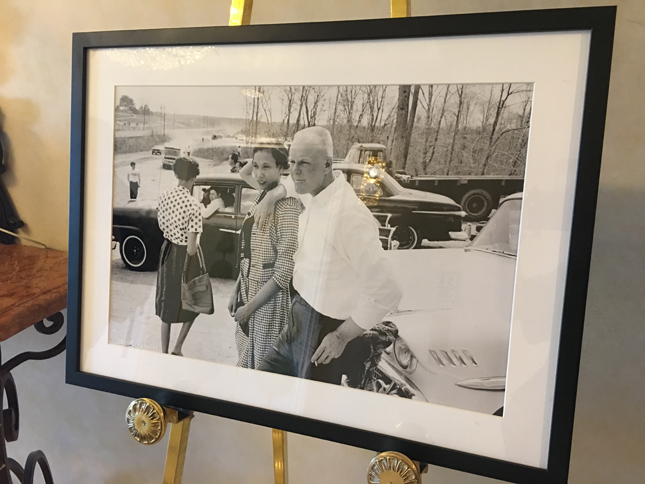
How would this affect people between the ages of twelve and 18?
What would you like people in that age group to take away from the movie?
JEFF NICHOLS: I’ll jump in real fast, ’cause you know, I graduated from Little Rock Central High, site of the desegregation crisis in ’57. I graduated in ’97. We’re actually going to take the film back there, in mid-November. Hopefully, I think we’re going to have a field trip screening for the entire school. Not the entire school, it’s too big, but portion of the school. And I’m fascinated to see, you know, how this story impacts them, or resonates with them, or doesn’t, you know? I think it’s going to be very interesting but, I think the message for kids is probably the same message for adults. It’s a pretty universal one.
Which is the idea that you need to remember. The people at the center of all these issues, you know, if these kids go home and they hear their parents having political debates or religious debates, whatever it is. Those so often don’t have anything to do with people, you know? And that’s what I kind of want people walking out of the theater thinking about. I don’t know how I feel about gay marriage, but gosh, if they’re as sincere as Richard and Mildred, maybe I need to open my mind up to the possibility.
JOEL EDGERTON: My niece is only eight. She couldn’t care less about any of the movies I’ve ever done. Now, she would never really get to see most of them, cause they’re too violent or the content of them for whatever reason. But you know, she’s also fishing around online and it’s impossible to get her out of the iPod or the iPad at the moment. Whether her mother showed her the trailer for Loving, or she found it herself, or she watched it with a friend or something. She’s been at me about wanting to see.
Well, she asked her mother would it be okay, would she be allowed to see this movie? And I think there’s something that she’s curious about in it. She’s a product of, an interracial couple. Her father’s Japanese and her mother is Australian. But there’s obviously something there. I remember thinking okay, most movies I’m not allowed to show young people that I’m involved with. I thought, I think she can see it. And I think that in many ways, children, I think will view this and probably look at us and go, well what was the problem?
Yeah, ‘cause at some point, I think children do see color and they do see otherness. I used to say the opposite. Children don’t see color. I think they do. They just don’t know how to value judgement in a negative fashion to it. Someone has to teach them that.
TERRI ABNEY: Yeah. I think that it’s interesting that this story isn’t taught in schools. I did my last year of high school in Virginia, and so I learned about it in Virginia history. But before that, I never learned about it in D.C. and I didn’t learn about it in college.
It shows us that we pick and choose what to teach, what we think and the idea of historical figures are. Like you said, this is a love story. So at the center and the core of these people, love was the basis. They didn’t set out to be civil rights leaders and they could care less about it. They wanted to go home. They wanted to be with their family and they were extremely brave. They risked everything for love.
So if we as people, just love a little more, you know, everyday. Like, if I decide to get up in the morning and maybe do an act of generosity, or smile at someone, we can change the world. I consider myself Christian, and so if I’m a Christian, and we learn about darkness in the Bible and darkness can be, equated to hate. Right. And if you put a light on in a room it, the darkness, evaporates. And it’s the same with love. In order to eradicate hate in the world, we have to start with loving.
I don’t know if, because we are who we are, and we’re not having conversations about why we hate people, or why if I don’t like a person who is the same, who practices same sex practices. Or they’re in an interracial relationship. Or a person of color. Or an individual from Asia. Because let’s face it, we’re not looking at these things only in America. They’re universal issues, and these universal issues can be changed through love.
Maybe we can’t change that, but if we start the conversation, and then we pour into children whether or not those kids are twelve to 18, the cycle might not be broken. I think it actually starts in elementary school, when children are like sponges and they’re willing to absorb everything. Because like you said, your niece, she’s eight and she’s not thinking about, she’s not going to takeaway, she’s going to ask, well what was the problem? That’s when we have the conversation, so that we can start to change their mind sets because we’re no longer the future. The children, they’re the future, and they’re going to be the individuals to really make a difference in the world. And it starts with us deciding to have a conversation.
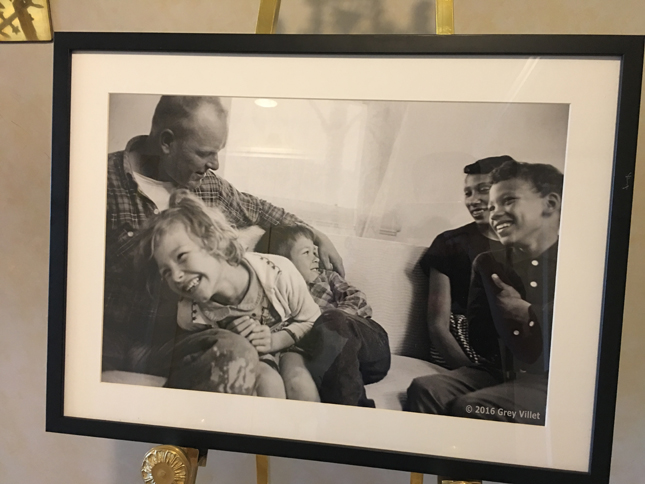
Was this an easy sell to get this movie made?
Did it take a lot of years? Was it something people automatically jumped on board to say yes, let’s make this movie?
JEFF NICHOLS: It was pretty easy. I’ve been in this seat and I’ve talked about the hardships of getting independent films made. I’ve never made a film this topical before, in terms of its social connections. But, if I’m going to be completely honest, I have to say when we went out to the marketplace, there were some calculations. The budget had to fluctuate a little bit, given all of the components. But here were actually several groups of people that wanted to tell the story.
That didn’t mean they could afford to tell it. We were pretty strict about how much money we needed to execute it and stood by that. I’m fortunate that I was at a point in my career where people were willing to risk that on me, and on us. You know, but if I’m going to be completely honest, and I think it’s important to say it out loud, I wasn’t confronted by an industry hesitant to tell the story. quite the opposite.
It was 2012, when I was approached by Colin Firth, Jed Dougherty and Nancy Buirski. Nancy Buirski made the documentary, the Loving Story, and that was my first touch point to Richard and Mildred. I hadn’t heard about them, as Terri was saying. I wasn’t taught this in school, despite the fact that I went to a school that civil rights history is a foundational part, you know?
So I looked at this documentary, and I fell in love with these people. I saw what I think is one of the greatest love stories in American history, just sitting there in front of me, and nobody knew about it. In 2012, they were taking marriage equality rights state by state. Trying to win them in the event that they didn’t navigate it all the way to the Supreme Court. And you look at this story and you think, wow, their relevance is palpable. Why aren’t we talking about this? So, between that and honestly just falling in love with Richard and Mildred as people, it was a pretty undeniable choice to make.

Why did each of you decide to take upon your role and what drew you to your part?
JOEL EDGERTON: Everything. I didn’t know about them and I saw what an amazing story it was. How special it was and how, on a personal level as an actor, what a great gift that would be. A great challenge. I got very nervous that any of the different obstacles of Hollywood would get in the way of the movie being made. Or the finance wouldn’t come together or someone who held the money would say, that may, or that I couldn’t do the movie. It had to be somebody else. It just became that thing that was the real challenge was, and it wasn’t that hard, was just pushing everybody out of the way while we waited to make the movie. Because I just didn’t want to not be around and not be available to do this, no matter how small a project it might feel like. It felt much bigger than anything else that was possible on a job.
(Ruth jokes with Joel about getting rid of the competition with a gentle shove)
RUTH NEGGA: I just fell in love with this couple. Like Jeff said, I felt that it’s the greatest love story that’s never been told. And I know that I found that there’s a reason that both Nancy and I, how we found out about it.
I’d read Mildred’s obituary from 2008. It was a thin sliver of an obituary and I was reading it. It is a fascinating story, and a fascinating family and it was a picture of Mildred with her eye patch, ’cause she lost an eye in that car accident. And with the three kids, Donald and Sydney and Peggy, with Peggy holding one of her children. This is like in the 70s, and I was fascinated with this. They said that they changed the Constitution of the United States and I thought, no they couldn’t have. Because otherwise we’d know. But they did, and we didn’t know and that always struck me. Then I watched snippets of the documentary, and I eventually watched it in full and I just was flabbergasted. I was really floored by this couple, both individually by their individual spirit, but their love for each other. Which the air is thick with this love for one another in the documentary. I think that that was very important for us. We wanted to capture that and recreate that, because it was so beautiful.
It was a kind of love that I know Jeff talks about, that you kind of are a bit thirsty for. Cause it’s not the kind of melodramatic cliché kind of love. It’s a real soulful love. They really liked one another. They really respected one another. Watching them interact, you realize that they treated one another as true equals. I was incredibly moved by that. By them and their just innate goodness. The goodness is coming off them in sheets. You know? You can feel that when you see the documentary and I’m just privileged it was all mine. I was determined to play Mildred, ‘cause I really did feel connected to her and I don’t think I’m unique in that. I just I thought that I could potentially play this woman.
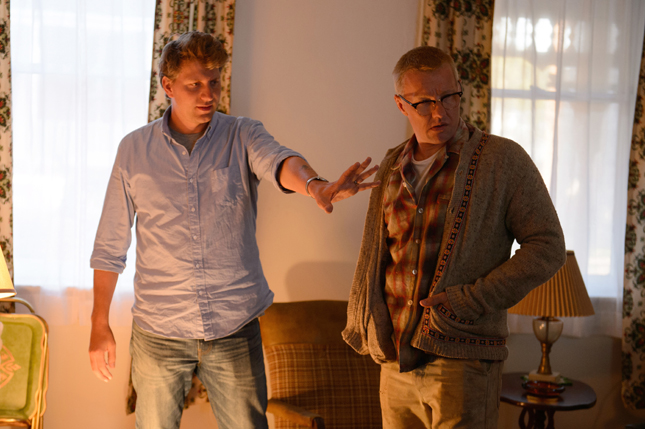
Director Jeff Nichols (left) and actor Joel Edgerton (right) on the set of LOVING, a Focus Features release.
Credit : Ben Rothstein / Focus Features
Was there a scene that you shot for the movie that was cut for one reason or another, that you wish was still in there?
JEFF NICHOLS: No. Sorry. Yeah, it’s boring answers to a good question, ‘cause that has happened on every film that I’ve ever made. There’s been some integral part, it’s usually about two thirds of the way through the film. And as soon as I lift it out, the movie just starts to work. Happened in Midnight Special, it happened in Mud, happened in Take Shelter. Didn’t happen in Shotgun Stories. This film, honestly, is the most precise thing I’ve ever directed in my life. The execution from script to screen, I haven’t been involved in something that laid out as truthfully to what was written on the page.
To what’s the final product and that’s a big credit to the three people sitting up here. They were able to take what was on the page, and manifest it in every instance, so there was never this moment of like, wow, they just didn’t show up that day. I’m going to have to cut around that, because that point isn’t salient enough, these people absorbed very much what was written in lines of action, not dialogue.
Behavioral kind of notations that we can all talk about and understand. You know? You’re nervous here. You’re frustrated here. You’re sad here. You’re mind can know those things, but to be able to process them through your brain, into your heart and out of your pores, that’s why these guys get paid the big bucks.
TERRI ABNEY: Credit to Jeff, in his writing, in his screenplay, ‘cause it’s so precise. That you don’t really need anything else. I’ve never read a screenplay that I thought, that was perfect. And this was. It was like reading, when you read Shakespeare or you read Nipson, or you read Beckett, you know? There’s nothing you would add or takeaway, and I felt very much that about this screenplay. And for an actor, that’s a gift, because you know you don’t need to. You don’t need to go off piece, it’s all there.

Loving stars Joel Edgerton, Ruth Negga, Marton Csokas, Nick Kroll, Terri Abney, Alano Miller, Jon Bass and Michael Shannon. Rated PG-13 and opens Friday, November 4th.
View the trailer for Loving here:
@LovingTheFilm (FB, Twitter, IG)
#ThisIsLoving


